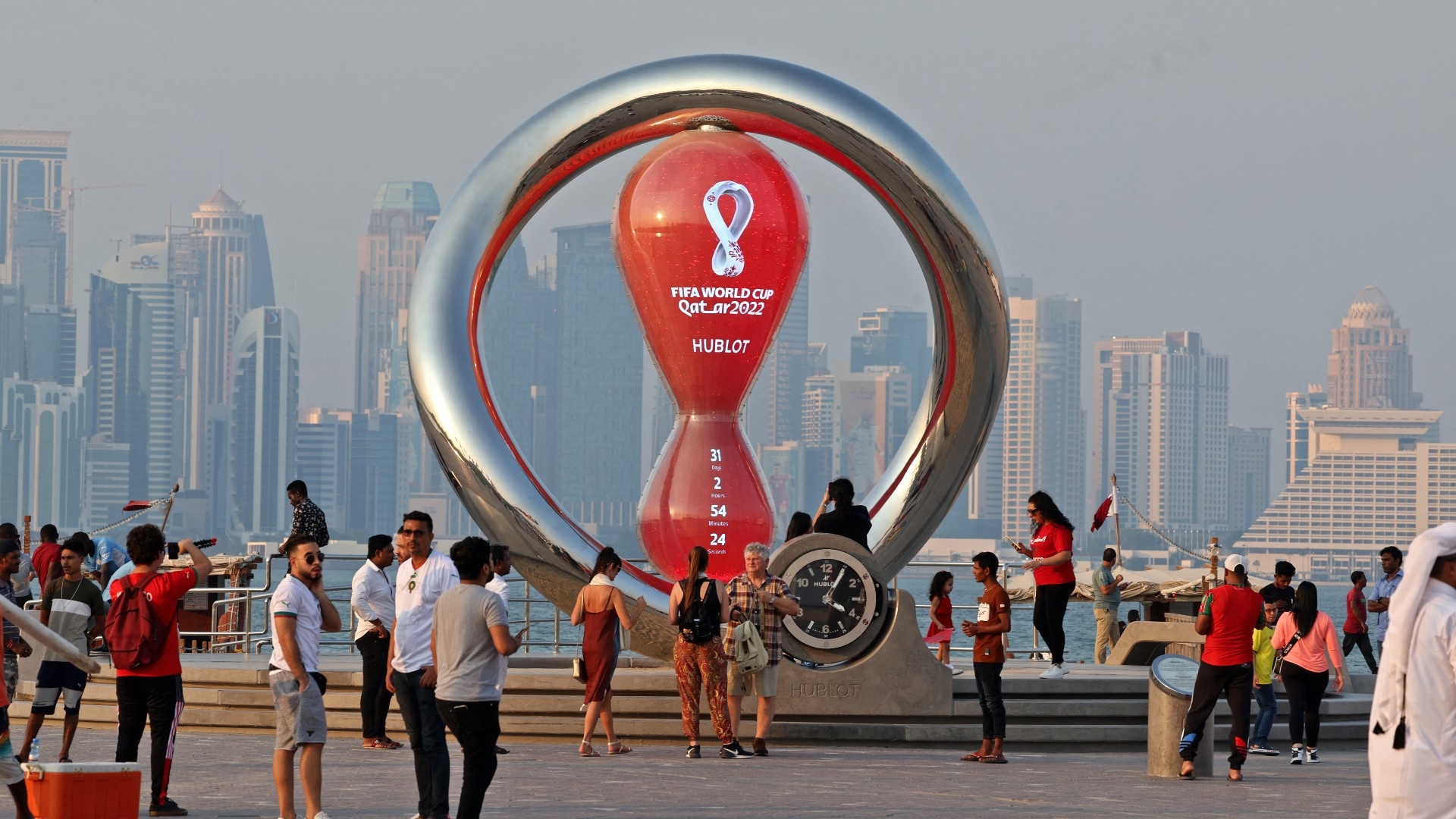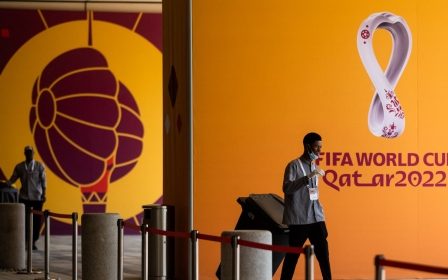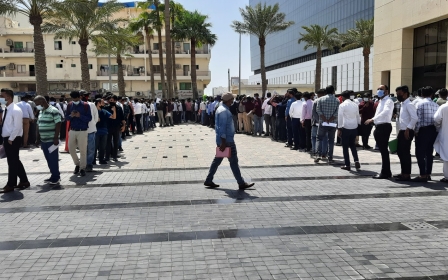World Cup 2022: Qatar detained and abused LGBTQ+ people, says report

Qatari authorities have arbitrarily arrested LGBTQ+ people and subjected them to ill-treatment in detention, Human Rights Watch said on Monday.
The New York-based rights group interviewed six LGBTQ+ Qataris, including four transgender women, one bisexual woman and one gay man, who documented severe beatings and sexual harassment in police custody from 2019 until as recently as September, just weeks before the Gulf state hosts the World Cup.
“While Qatar prepares to host the World Cup, security forces are detaining and abusing LGBT people simply for who they are, apparently confident that the security force abuses will go unreported and unchecked,” said Rasha Younes, LGBTQ+ rights researcher at Human Rights Watch.
Security forces arrested people in public places based on their gender expression and unlawfully searched their phones, HRW said, as well as mandating that transgender women attend conversion therapy at a government-sponsored centre.
In a statement, a Qatari official said that the country does not “licence or operate ‘conversion centres”.
New MEE newsletter: Jerusalem Dispatch
Sign up to get the latest insights and analysis on Israel-Palestine, alongside Turkey Unpacked and other MEE newsletters
The official claimed HRW’s report “contain[s] information that is categorically and unequivocally false," without specifying further.
All those interviewed by the rights group said that Qatar’s preventative security department detained them in an underground prison in the al-Dafna district of the capital city, Doha.
At the facility, they were subject to verbal harassment and physical abuse, including slapping, kicking, and punching until they bled.
Authorities extracted forced confessions and denied access to legal counsel, family, or medical care, and forced detainees to sign pledges to “cease immoral activity”.
Transgender women abused
A transgender Qatari woman said she was arrested on the street in Doha, and beaten in the police car until her lips and nose were bleeding, in addition to having her stomach kicked.
“I saw many other LGBT people detained... two Moroccan lesbians, four Filipino gay men, and one Nepalese gay man,” she said.
“I was detained for three weeks without charge, and officers repeatedly sexually harassed me. Part of the release requirement was attending sessions with a psychologist who ‘would make me a man again.’”
Another transgender woman said she was beaten daily and her hair was shaved.
“They made me take off my shirt and took a picture of my breasts. I suffered from depression because of my detention. I still have nightmares to this day, and I’m terrified of being in public,” she added.
All the LGBTQ+ detainees that spoke to HRW said that the authorities forced them to hand over their phones, taking screenshots of private pictures and chats.
“The Qatari government should call an immediate halt to this abuse and Fifa should push the Qatari government to ensure long-term reform that protects LGBT people from discrimination and violence,” said Younes.
Same-sex acts between consenting adults in private are a criminal offence in Qatar punishable by up to seven years in prison.
Fatma Al-Nuaimi, communications director for Qatar's 2022 World Cup Supreme Committee for Delivery & Legacy, previously told Middle East Eye that “everybody is welcome regardless of their race, religion, gender, sexual orientation”.
When asked about whether the tournament would bring about reforms for LGBTQ+ Qataris, Nuaimi asked for people to “respect the culture and the tradition of the country”.
This article is available in French on Middle East Eye French edition.
Middle East Eye delivers independent and unrivalled coverage and analysis of the Middle East, North Africa and beyond. To learn more about republishing this content and the associated fees, please fill out this form. More about MEE can be found here.




